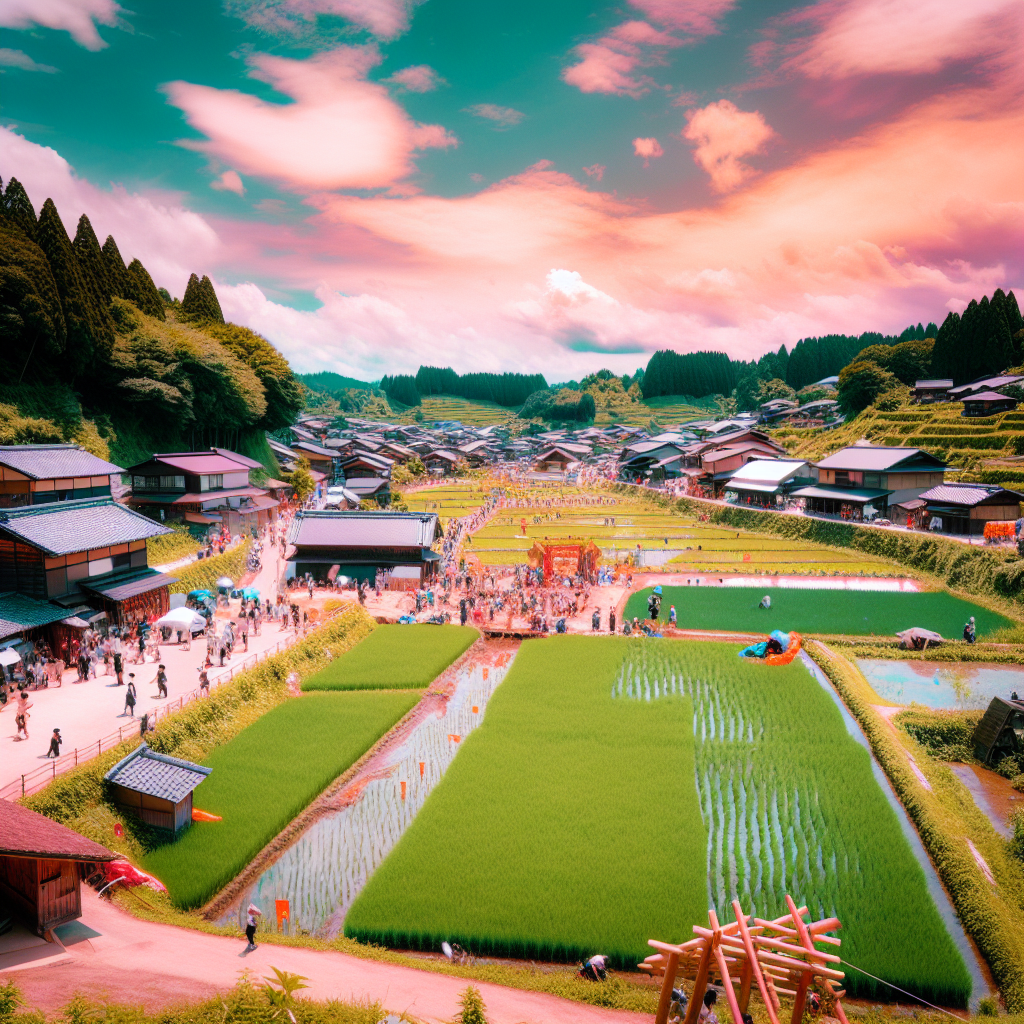Journey into the lesser-known heart of Japan, where rural village life unfolds the country’s vibrant traditions and cultural rituals. Delve into how Nakadate and similar towns preserve their heritage, offering soulful experiences and insights into authentic agrarian traditions.
Discovering the Hidden Japan
In Nakadate, the soil tells stories whispering of heritage, where intergenerational wisdom shapes daily life. Here, the rhythms of agrarian traditions, like rice planting and harvest festivals, remain pulse points of cultural identity. Community-centered tourism invites visitors to witness rituals that have endured through time, each festival a tapestry of folklore, food, and spirituality. Participating in these seasonal celebrations fosters a deeper understanding of Nakadate’s narrative, bridging the gap between urban dwellers and the tranquil essence of rural Japan.
Embracing Rural Japanese Culture
In Nakadate, daily life is steeped in agrarian traditions that define its community identity. The rhythm of the seasons dictates not only agricultural practices—a tapestry of rice cultivation, sake brewing, and vegetable farming—but also the shared narratives passed down through generations. Local wisdom shines in their meticulous approach to farming, where the community’s collective memory shapes methods and rituals. These everyday practices offer a reflective journey for visitors, fostering a deeper understanding of Japan’s spiritual connection to nature and the value of mindful travel. Engaging with Nakadate’s lifestyle illuminates the richness of rural culture, where every harvest becomes a story woven into the fabric of this charming village.
Celebrating Traditional Festivals
In Nakadate, traditional festivals pulse with life, acting as vibrant threads that weave community together. Events like the *Aoi Matsuri* celebrate the changing seasons, with rituals that harmonize spirituality and nature. Elders pass down local wisdom through storytelling and dance, fostering intergenerational bonds. As villagers don ornate costumes, the air fills with the sounds of taiko drums and flutes, echoing the agrarian traditions that define regional identity. These festivals not only preserve cultural heritage but also invite thoughtful exploration, enriching community-centered tourism and allowing visitors to experience authentic Japan.
Mindful and Slow Travel in Japan
In the heart of Nakadate, slow travel unveils an authentic tapestry of rural life, where each moment is a brushstroke in the greater narrative of Japan’s countryside. Embracing a mindful travel philosophy allows visitors to engage deeply with agrarian traditions, fostering a connection to nature and spirituality. Walking along heritage paths, travelers can witness everyday rituals and vibrant storytelling, enriching their understanding of regional identity. This intentional approach not only nurtures inner reflection but also amplifies local voices, ensuring the preservation of cultural wisdom for generations to come.
Empowering Community and Heritage Preservation
In Nakadate, community-centered tourism thrives as a potent mechanism for cultural preservation amidst the challenges of vanishing rural towns. Heritage walking tours serve not merely as paths through picturesque landscapes, but as narratives that amplify the voices of local residents, fostering intergenerational dialogues. Through storytelling and shared experiences, travelers gain authentic insights into Japanese agrarian traditions and rituals, while communities reclaim their heritage. This exchange cultivates a deeper understanding of regional identity, weaving together past and present for mindful reflection amid the serene countryside.
Parting Words
Embracing hidden Japan’s rural charm enables deep cross-cultural understanding. Through Nakadate’s traditions, visitors can reconnect with timeless narratives and bask in cultural preservation efforts pivotal to Japan’s identity.

Leave a Reply